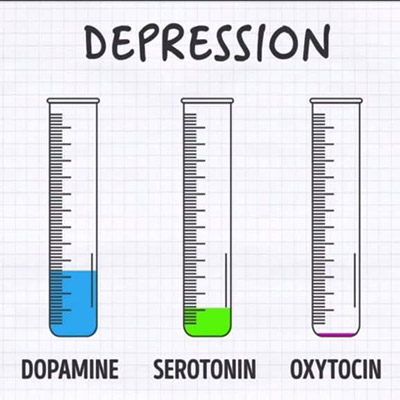This article looks at the dopamine agonist pramipexole. This is not a perfect answer but gives you details that could be used to form a perfect answer for Biological and Abnormal Psychology units.
Agonists can be neurotransmitters or any chemical that binds to a neurotransmitter receptor and stimulates the postsynaptic neuron into potentially firing (remember that an action potential requires many receptors to become stimulated to pass the threshold). An antagonist is a neurotransmitter or chemical that blocks a specific receptor, thus stopping an agonist from entering the receptor and stimulating the postsynaptic neuron. Pramipexole is a dopamine agonist: it mimics dopamine, therefore stimulating dopamine receptors and causes the postsynaptic neuron to fire.
<MORE>
Pramipexole is a drug prescribed for Parkinson’s disease sufferers since lower levels of dopamine may cause a reduction of motor function and related coordination. This makes sense when you consider the link between dopamine, pleasure, and rewards. In fact, Parkinson’s sufferers prescribed pramipexole often develop addictive personalities due to the over-activation of the dopaminergic system.
Dopamine is also unexpectedly associated with decreasing feelings of depression. The latter is theorized to consist of two main symptoms: anhedonia and depressed mood. Anhedonia can best be described as a serious decrease in feelings of pleasure or interest in an activity that was, prior to the development of the disorder, considered highly rewarding. Depressed mood is a more difficult idea to define but can be thought of as the absence of happiness for long periods of time. Psychologists constantly debate this definition using qualitative sources. Regardless, it seems that both serotonin and dopamine may be important components of the disorder. Research on the drug pramipexole has established dopamine as a key neurotransmitter in the anhedonia symptom of major depressive disorder.
Aim: Cusin et al. (2013) wanted to test the effectiveness of pramipexole in treating major depressive disorder (MDD).
Methods: The researchers conducted a double-blind drug experiment using a placebo group and recommended dose pramipexole group. 60 participants were randomly assigned to one of the 2 groups without themselves or the researchers knowing who was in which group. This helps to remove any bias associated with influencing the outcome of the experiment. All of the participants had tried other treatments for their MDD (which was tested using the Montgomery-Asberg Depression Rating Scale) but these treatments had not succeeded.
Results: There was a small but significant reduction in MDD symptoms in the pramipexole treatment group (dopamine agonist).
Discussion/Conclusion: Other studies support these findings, such as that pramipexole is effective when other treatment types have failed. Pramipexole may be a good treatment for MDD when more researched drugs such as SSRIs and other available biological treatments fail to relieve the symptoms of the disorder.
<LESS>
